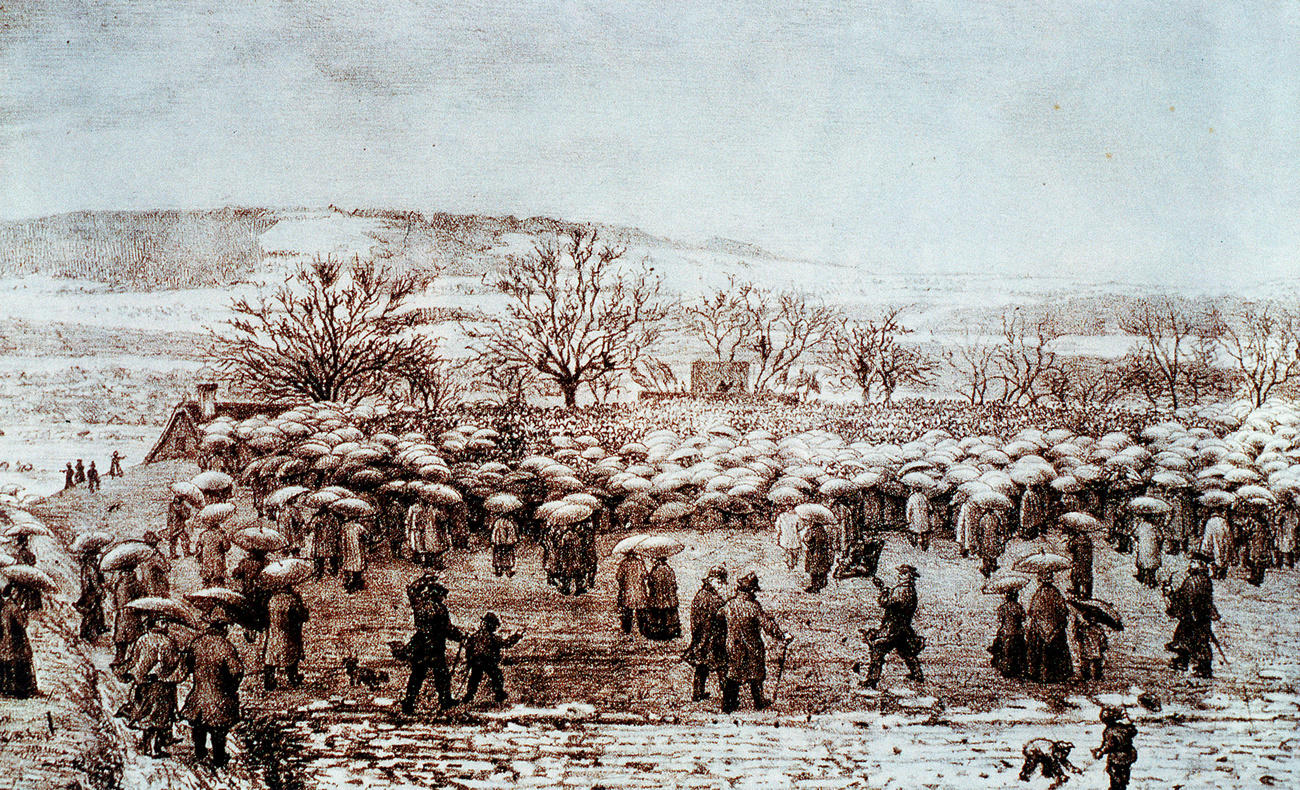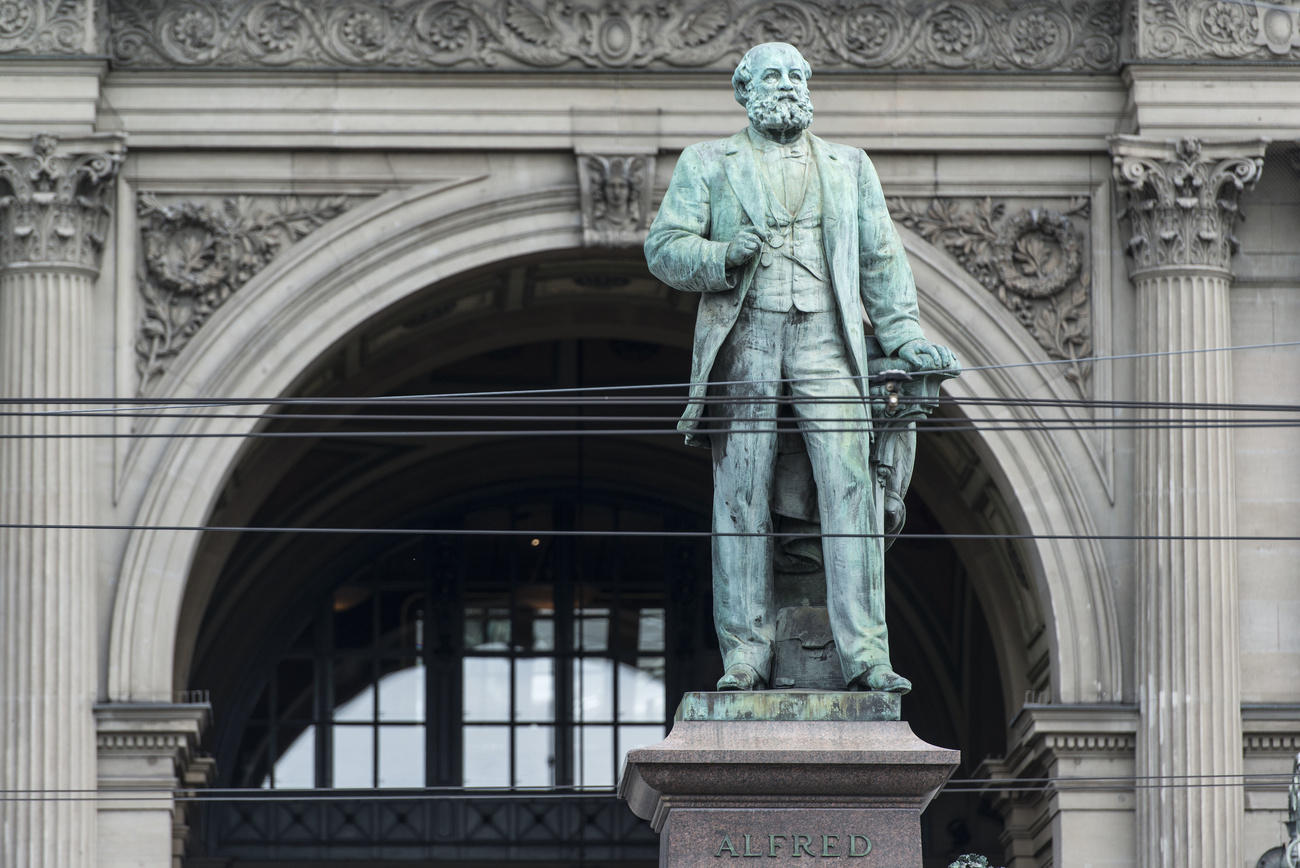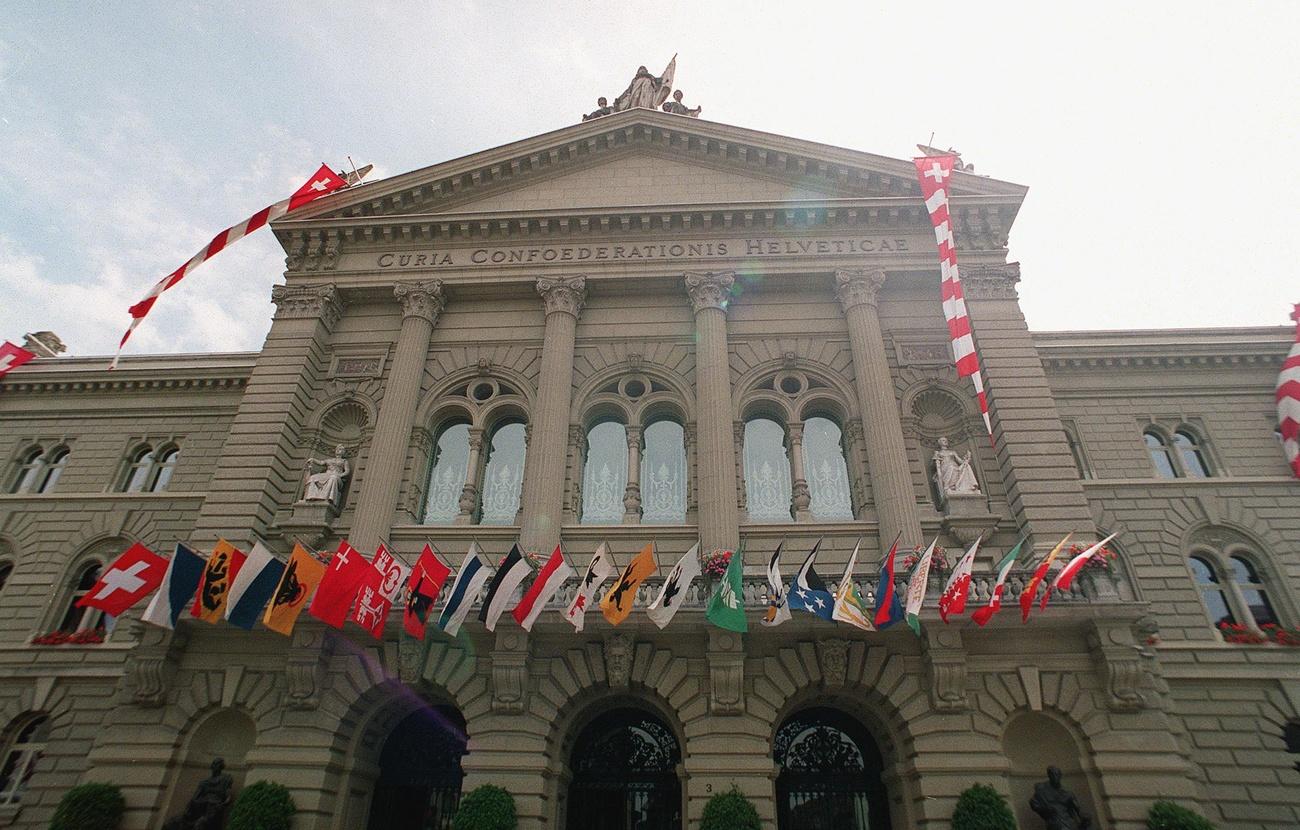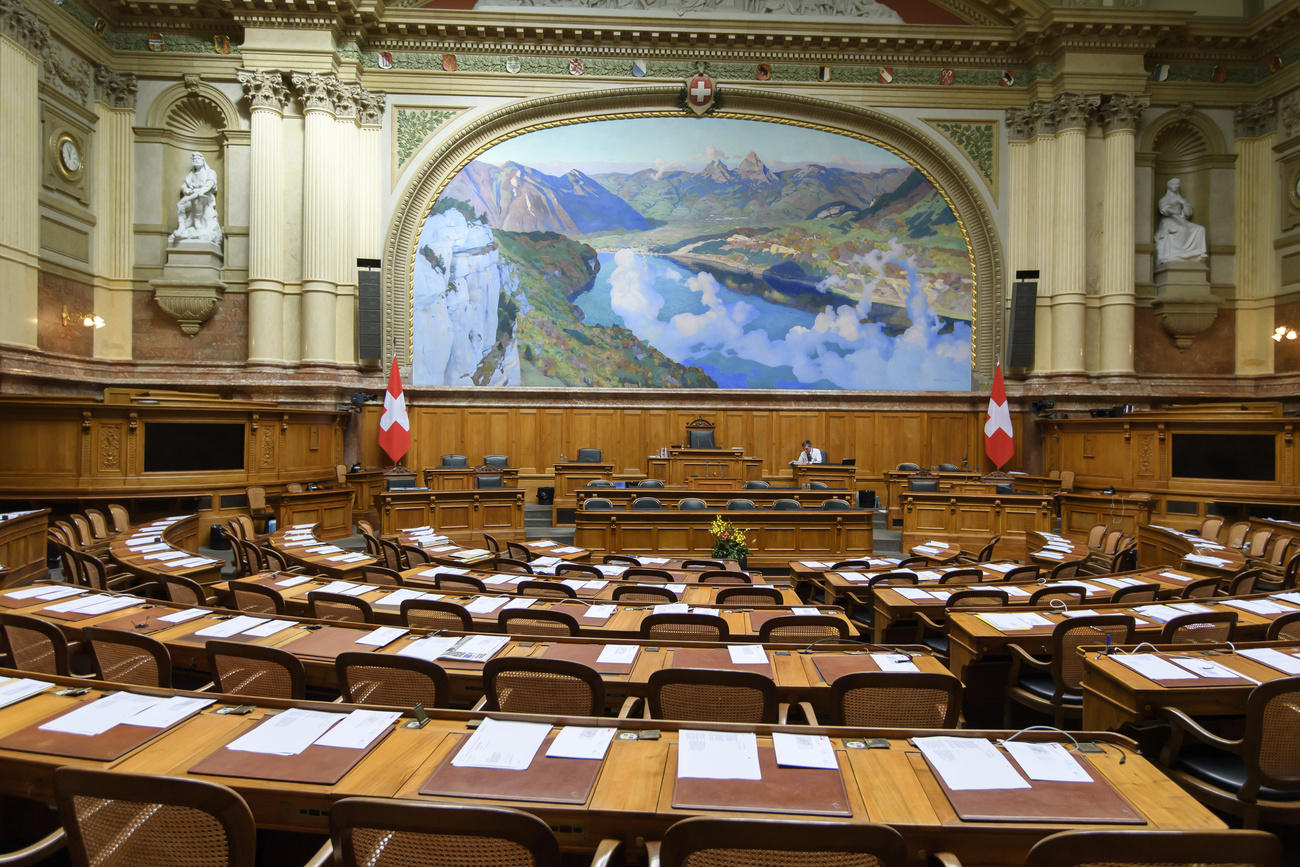How a Zurich epidemic helped to birth Swiss direct democracy

In summer 1867, cholera spread through Zurich. By the time it had been stamped out, in the autumn, the canton was about to create “the most democratic political system in the world”.
After the first case was recorded in July 1867, the disease spread quickly, especially in the poorer and dirtier districts of the city, writesExternal link Swiss medical historian Flurin Condrau.
Health authorities, still in their infancy at the time, took the familiar steps: the quarantining of infected houses, a strict separation of the healthy from the unhealthy. Citizens, meanwhile, viewed their efforts with distrust, and as the death-rate rose, they began also to be infected by an eerie atmosphere, as the Winterthur Landbote reported:
“If you haven’t been to Zurich in the past few weeks, you can’t really imagine what it’s like, both in the streets and in your mind […] The impact of the fearful epidemic and the pressure of sudden loneliness lie heavy on the population, and those who have lived in this situation for weeks cannot avoid taking on such a dim impression.” (September 28, 1867)
And despite calls by the authorities for solidarity and community, “many members of the wealthier classes saw things quite differently, fleeing the city”, Condrau writes.
Then, by the end of October, it was over: 481 people had died, and the disease had not spread beyond the city, let alone canton or country.
Success? Not for the authorities at least. The event proved to be the catalyst for the overthrow of the liberal regime – epitomised by the omnipotent figure of entrepreneur Alfred Escher – that had governed Zurich for decades. In its place, citizens demanded more democracy: first in Zurich, where a new constitution was approved in 1869 (surviving until 2005), then across much of the country, as other cantons became inspired.
In 1874, the right to referendum was incorporated into the national constitution as a control instrument for parliamentary laws; the right to constitutional initiatives by the people was added in 1891.
Societal stress test
As always, the difficult historical question is to what extent did the event directly lead to political change, or to what extent were pre-existing tensions just waiting for a spark.
Condrau, from the University of Zurich, says that in 1867 “conditions were just right” for a shift. He places the disease as part of a trio of decisive trends in 1860s Zurich, the others being an economic downturn and the burgeoning democratic movement, which was already beginning to question the elitist political order.
Social, economic, and political issues are all liable to impact each other at the best of times, Condrau tells swissinfo.ch. But a crisis – in this case an epidemic – is a “stress test” for society, suddenly revealing where weaknesses and inequalities lie, and calling into question old values and rules that appear unable to provide answers.
New movements can then capitalise. In this case, because cholera disproportionately hit working class areas, the population naturally viewed it not just as a health crisis but a social crisis; the democratic movement “immediately” linked it to its political reform efforts, and was successful in drumming up support and signatures for constitutional reform.

Behind the facade
Andreas Gross, a former Swiss parliamentarian and historian, describes the epidemic as a “social indicator”. With the poor clearly more affected, the crisis revealed the lie at the heart of the Zurich authorities’ discourse: the city was not the booming metropolis of wealth and well-being they had claimed it was.
Gross quotes another Winterthur Landbote report, from October 23, 1867:
“Cholera has led to deeper insights into the people’s lives […] it was discovered that many of our fellow citizens are positioned in such a way that, with the best will in the world, it is impossible for them to eat properly […] Is the worker really there to make every effort to only partially acquire his life’s needs and be dependent on charity for the rest? Do you have no idea that such conditions must have a depressing and unnerving effect on the sense of honour and morality of the worker?”
While the macroeconomic situation was booming, there were gaps below. The liberals under Escher had pumped money into infrastructure and industry, but this was done from the top-down and the spoils were not shared equally, Gross says.
“They neglected the people, they didn’t care about their needs, and they didn’t create a fair tax system. They cared only about the upper middle class. Cholera lifted the lid on the real needs of the people, and on how many of them were still stuck in misery.”
Global challenge
The even more difficult question is how to apply such lessons to today’s crisis. For Gross and Condrau, the overall impact of Covid-19 is not fully clear. The narrative and shape of such epidemics are only seen once you get out of their eye.
From a democratic perspective, however, Gross does offer one prediction: the suspension of signature-collecting and popular votes in Switzerland is not likely to damage the system in the long run, he says.
“People are much more aware and sensitive of their political rights today than in the past,” he says. They are wary of giving up their democratic freedoms for too long, as in Switzerland after the Second World War:
+ Ending the WW2 state of emergency in Switzerland in 1949
As for the “hidden problems” such crises can reveal, we may find groups – homeless or asylum seekers, for example – whose vulnerability is exposed, Gross says. We may also learn the more intangible lesson of the effects that such a lockdown will have “on the soul”.
But overall, he reckons that while the 1867 epidemic acted as an eye-opener to inequality and misery in Zurich, the Covid-19 crisis might do the same on the international level: “in countries like India, Bangladesh, Ecuador or the Congo, millions could die, people who would have survived had they lived in Europe – this is a scandal which a humane society cannot take responsibility for,” he says.
Condrau also reckons the good shape of the Swiss health system and economy means the country has a better chance than most of coming through the current stress test without profound cracks appearing.
He agrees that the big impact will be seen elsewhere. Just as the 1867 crisis revealed a sub-par public health system in Zurich, many countries are now discovering that their hospitals are not ready for large-scale epidemics. On top of this, nations with weaker economies to begin with – he mentions Spain and Italy – will be pushed to the limit.
Beyond cities or countries altogether, he sees the main lesson from the 2020 pandemic as being – in contrast to 1867 – the “global dimension”. We are seeing that this “cannot be dealt with nationally, and so the role of international organisations like the World Health Organisation and European Union are seeing their importance rise”.
After years of neglecting such bodies, we will again realise the importance of international cooperation, Condrau says. That is, if such institutions survive the stress test themselves.

More
Coronavirus: the situation in Switzerland

In compliance with the JTI standards
More: SWI swissinfo.ch certified by the Journalism Trust Initiative




You can find an overview of ongoing debates with our journalists here. Please join us!
If you want to start a conversation about a topic raised in this article or want to report factual errors, email us at english@swissinfo.ch.